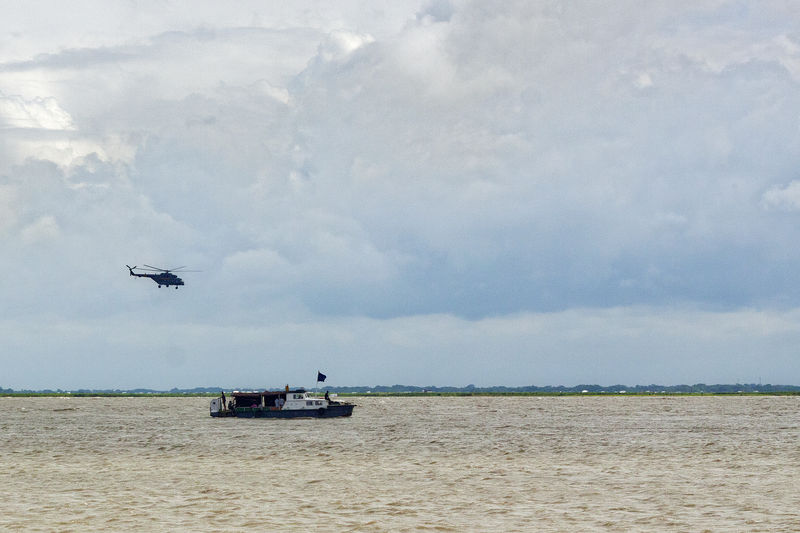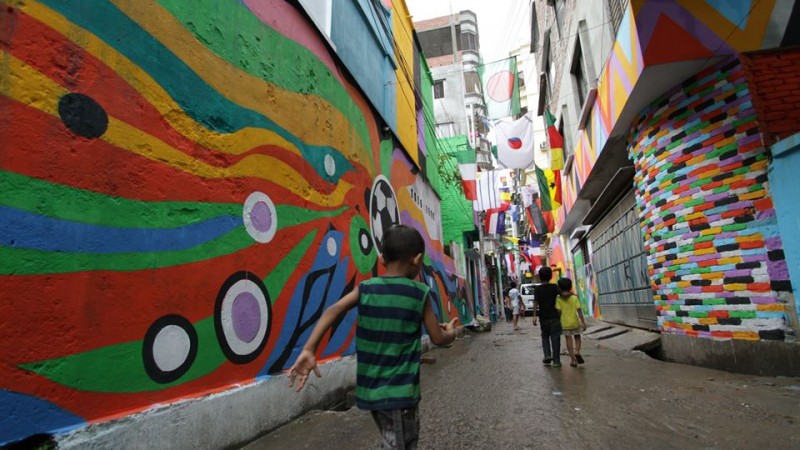The title is actually a name of a book, which is a compilation of the gaffes in the usage of English that we came across every day in Bangladesh. Well I have not read it yet, but reading its review prompted me to write something about the usage of English in Bangladesh. Actually Bangladesh, as a part of Indian subcontinent was ruled by the British for a couple of centuries. The tentative beginnings of English language acquisition in Bengal date from the 1630s, when the first English factories started being set up. Though today English is no longer the official language as it was during the British Raj, it is the most important foreign or second language in Bangladesh. It is taught at most educational institutions as a subject and is a compulsory paper in almost all public examinations.
During the British Raj, English was deemed as the language of the elites. The native govt. employees had to learn English with proper pronunciations to prove their competency. But as English was spread among the common people; first the pronunciations got a scent of the subcontinent. And then some people started to speak a language, which had many local flavors and words in it and they got away with the proper use of grammars. That is known to everybody as 'Railway English'. Now many people, especially in India has developed a totally unique accent of English, which is recognized by others.
The standard of English nationally in Bangladesh is not high and English is still an urban, elite language. In rural areas where the common people are mostly farmers or day laborers, the use of English is very less. And the standard is really poor. But day-by-day it is improving, as literacy rate of Bangladesh is moving up.
Now coming back to the title, in Bangladesh generally Bangla is widely used. The car registration plates carry Bangla numbers and hoardings, signs too. But people try to add an elite flavor in signs, billboards, headlines etc by placing an English translation beside that. That's where it all starts to go wrong. In many places the literal translation keeps the local meaning but totally loses the English one e.g. the TV serial Baba (A sentimental journey), or the film title Shundori (And she was beautiful).
You will find a lot of shops in the country with names like '007 Attitude', 'Crystal & Sports', 'City Foreign Furniture', 'TIT Enterprise', 'virgin I'les', 'Book SHIT' and 'Happy Today Food Court'.
There are funnier news headlines like 'Lara in bed with suspected chicken pox' which will leave the readers with lots of speculations.
There are plenty of these things, which are compiled by Reena Abraham & Laura Bonapace in the Book "Lost in translation". But the price (Tk. 500) is a bit on the higher side and not many people would be able to purchase it. I have seen that in Bangladesh, many good books are priced excessively mainly because there are not many copies published. The lack of readers prompt the publishers resort to a higher price. And higher price keeps away many potential readers. This vicious cycle is actually harming the publishing industry prompting many copycats.
Since long I was planning to buy 'Brick Lane' by Monica Ali but its shelf price (UK edition) is Tk. 800 (GBP 10) was a bit expensive for me. That day I bought it for 160 from a vendor in the street. Can you believe it? It's the same. But looks as a paperback type. I have learnt that some local publishers have resorted to pirating books just to be able to sustain themselves. And if I get the same at cheap rate I won't mind from where it has been coming. But it is unethical. But for the publishers, copyright is their right to copy.
During the British Raj, English was deemed as the language of the elites. The native govt. employees had to learn English with proper pronunciations to prove their competency. But as English was spread among the common people; first the pronunciations got a scent of the subcontinent. And then some people started to speak a language, which had many local flavors and words in it and they got away with the proper use of grammars. That is known to everybody as 'Railway English'. Now many people, especially in India has developed a totally unique accent of English, which is recognized by others.
The standard of English nationally in Bangladesh is not high and English is still an urban, elite language. In rural areas where the common people are mostly farmers or day laborers, the use of English is very less. And the standard is really poor. But day-by-day it is improving, as literacy rate of Bangladesh is moving up.
Now coming back to the title, in Bangladesh generally Bangla is widely used. The car registration plates carry Bangla numbers and hoardings, signs too. But people try to add an elite flavor in signs, billboards, headlines etc by placing an English translation beside that. That's where it all starts to go wrong. In many places the literal translation keeps the local meaning but totally loses the English one e.g. the TV serial Baba (A sentimental journey), or the film title Shundori (And she was beautiful).
You will find a lot of shops in the country with names like '007 Attitude', 'Crystal & Sports', 'City Foreign Furniture', 'TIT Enterprise', 'virgin I'les', 'Book SHIT' and 'Happy Today Food Court'.
There are funnier news headlines like 'Lara in bed with suspected chicken pox' which will leave the readers with lots of speculations.
There are plenty of these things, which are compiled by Reena Abraham & Laura Bonapace in the Book "Lost in translation". But the price (Tk. 500) is a bit on the higher side and not many people would be able to purchase it. I have seen that in Bangladesh, many good books are priced excessively mainly because there are not many copies published. The lack of readers prompt the publishers resort to a higher price. And higher price keeps away many potential readers. This vicious cycle is actually harming the publishing industry prompting many copycats.
Since long I was planning to buy 'Brick Lane' by Monica Ali but its shelf price (UK edition) is Tk. 800 (GBP 10) was a bit expensive for me. That day I bought it for 160 from a vendor in the street. Can you believe it? It's the same. But looks as a paperback type. I have learnt that some local publishers have resorted to pirating books just to be able to sustain themselves. And if I get the same at cheap rate I won't mind from where it has been coming. But it is unethical. But for the publishers, copyright is their right to copy.






























